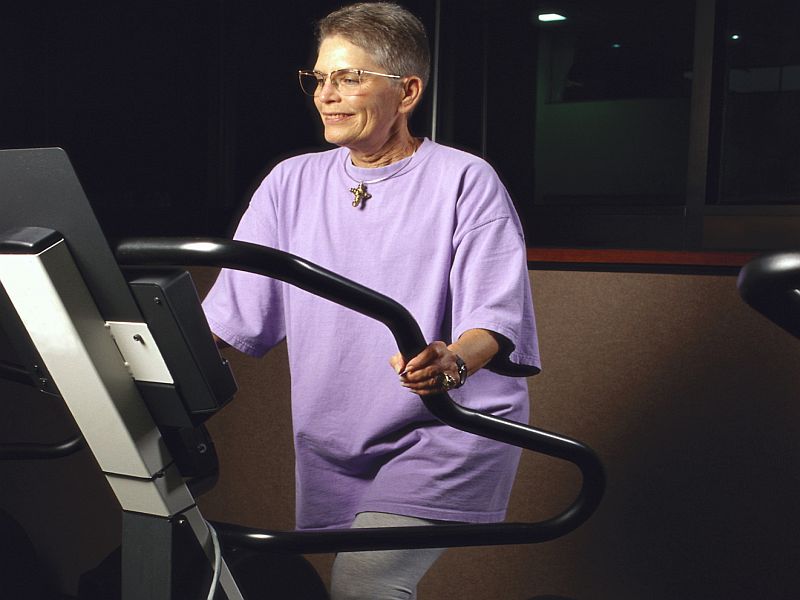
MONDAY, April 2, 2018 (HealthDay News) — Even decades after treatment, cancer survivors tire more easily than people with no history of the disease, according to new research.
The findings hint at a pattern of “accelerated aging” for people with a cancer history.
“The main goal of cancer treatment has been survival, but studies like this suggest that we need also to examine the longer-term effects on health and quality of life,” said the study’s senior author, Jennifer Schrack. She’s an assistant professor at the Johns Hopkins School of Public Health.
The researchers analyzed data from a long-term study on normal aging. More than 300 were cancer survivors, with an average age of 74. About 1,330 of those studied, average age 69, had not had the disease.
Participants completed periodic treadmill tests and 400-meter walks (two-tenths of a mile) to assess their endurance, beginning in 2007. Afterward, they were asked to rate their level of fatigue.
The researchers compared results of cancer survivors with the results of adults who never had cancer.
“We were surprised by the magnitude of the differences we found,” Schrack said in a university news release.
On average, those with a history of cancer treatment tired more easily on the treadmill tests and took longer to finish the walking tests, the study found.
It showed cancer treatment was linked to a 1.6 times greater risk of a high level of fatigue.
Being older than 65 was associated with a 5.7 higher risk for this decline in endurance.
The cancer survivors walked, on average, 14 seconds slower and got tired more quickly, the study found.
The results were published recently in the journal Cancer. The U.S. National Cancer Institute and the U.S. National Institute on Aging funded the research.
As of 2016, there were some 16 million cancer survivors in the United States alone, the study’s authors noted.
Previous studies have shown that cancer treatment — often including chemotherapy and radiation — appears to speed up the aging process, leading to fatigue, a decline in brain function, heart disease and return of cancer.
These new findings “support the idea that a history of cancer is associated with higher fatigability and that this effect worsens with advancing age,” Schrack said.
“The long-term goal is that doctors and patients will be able to take those specific long-term effects into account when they decide how to treat different cancers,” she added.
— Mary Elizabeth Dallas

Copyright © 2018 HealthDay. All rights reserved.
SOURCE: Johns Hopkins Bloomberg School of Public Health, news release, March 2018
[the_ad id=”28610″]





Leave a Reply